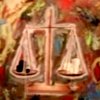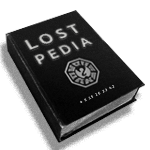Season: 3, Episodes: 1, Faction: DHARMA Initiative

![]()
 Overview
Overview
Annie was Ben’s childhood friend on the Island.


On the Island (1973)
3×20 – The Man Behind the Curtain
Soon after Ben’s arrival on the Island, he was greeted by Annie at the processing center. Annie introduced herself and gave Ben an Apollo Bar, telling him that they could have “as many as they want.” Their meeting was cut short, however, as a disappointed Roger stormed out with Ben.
Annie was also in Ben’s class, which was taught by Olivia. One day, after an experiment with a miniature volcano, the barracks were attacked by the Hostiles.
Olivia told Annie to lock the door, after which Annie guided Ben to safety by bringing him to the perimeter of the classroom. Annie attempted to comfort Ben by telling him that it was “just the Hostiles.”
Unlike Roger, Annie remembered Ben’s birthday, and presented him with a pair of carved wooden dolls, designed to represent herself and Ben. She gave the girl to Ben and kept the boy, telling Ben that because they each had the other’s doll, they would never have to be apart from each other. (“The Man Behind the Curtain”)

3×20 – The Man Behind the Curtain
The doll was a significant gift for Ben, and he kept it with him throughout his adult life. (“The Man Behind the Curtain”)
1977
5×08 – LaFleur
Four years later, she appears to no longer be a resident of the Island. (“LaFleur”)
5×15 – Follow the Leader
If she was still on the Island in 1977, she probably was evacuated with all the other children except Ben. (“Follow the Leader”)
Related Character Images
Associated DHARMA Station & Location
Decoded Season 2 & 3 Characters
Key Episode(s) to Decoding the Character

Wiki Info
Athena, also referred to as Pallas Athena, is the goddess of war, civilization, wisdom, strength, strategy, crafts, justice and skill in Greek mythology. Minerva, Athena’s Roman incarnation, embodies similar attributes. Athena is also a shrewd companion of heroes and the goddess of heroic endeavour. She is the virgin patron of Athens. The Athenians built the Parthenon on the Acropolis of her namesake city, Athens, in her honour (Athena Parthenos).
Athena’s cult as the patron of Athens seems to have existed from the earliest times and was so persistent that archaic myths about her were recast to adapt to cultural changes. In her role as a protector of the city (polis), many people throughout the Greek world worshiped Athena as Athena Polias (“Athena of the city”). Athens and Athena bear etymologically connected names.
Patroness
Athena the goddess of philosophy became a part of the cult in Classical Greece the later fifth century BC. She was the patroness of weaving, especially, and other crafts (Athena Ergane); the metalwork of weapons also fell under her patronage. She led battles (Athena Promachos or the warrior maiden Athena Parthenos) as the disciplined, strategic side of war, in contrast to her brother Ares, the patron of violence, bloodlust and slaughter—”the raw force of war”. Athena’s wisdom includes the cunning intelligence (metis) of such figures as Odysseus. Not only was this version of Athena the opposite of Ares in combat, it was also the polar opposite of the serene earth goddess version of the deity, Athena Polias.
Athena appears in Greek mythology as the patron and helper of many heroes, including Odysseus, Jason, and Heracles. In Classical Greek myths she never consorts with a lover nor does she ever marry, earning the title Athena Parthenos. A remnant of archaic myth depicts her as the adoptive mother of Erechtheus/Erichthonius by the foiled rape by Hephaestus. Other variants relate that the serpent who accompanied Athena, also called Erichthonius, was born to Gaia when the rape failed and the semen landed on Gaia, impregnating her, and that after the birth he was given to Athena by Gaia.
Though Athena was a goddess of war strategy, she disliked fighting without a purpose and preferred using wisdom to settle predicaments. The goddess would only encourage fighting if it was for a reasonable cause or to solve conflict. As patron of Athens she fought in the Trojan war on the side of the Achaeans.
Mythology
Birth
Although at Mycenaean Knossos Athena appears before Zeus does—in Linear B, as a-ta-na po-ti-ni-ja, “Mistress Athena”—in the Classical Olympian pantheon, Athena was remade as the favorite daughter of Zeus, born fully armed from his forehead. The story of her birth comes in several versions. In the one most commonly cited, Zeus lay with Metis, the goddess of crafty thought and wisdom, but he immediately feared the consequences. It had been prophesied that Metis would bear children more powerful than the sire, even Zeus himself. In order to forestall these dire consequences, after lying with Metis, Zeus “put her away inside his own belly;” he “swallowed her down all of a sudden.” He was too late: Metis had already conceived.
Eventually Zeus experienced an enormous headache; Prometheus, Hephaestus, Hermes, Ares, or Palaemon (depending on the sources examined) cleaved Zeus’s head with the double-headed Minoan axe, the labrys. Athena leaped from Zeus’s head, fully grown and armed, with a shout— “and pealed to the broad sky her clarion cry of war. And Ouranos trembled to hear, and Mother Gaia…” (Pindar, Seventh Olympian Ode). Plato, in the Laws, attributes the cult of Athena to the culture of Crete, introduced, he thought, from Libya during the dawn of Greek culture.
Classical myths thereafter note that Hera was so annoyed at Zeus producing a child that she conceived and bore Hephaestus by herself.
Plato, in Cratylus (407B) gave the etymology of her name as signifying “the mind of god”, theou noesis. The Christian apologist of the 2nd century Justin Martyr takes issue with those pagans who erect at springs images of Kore, whom he interprets as Athena:
“They said that Athena was the daughter of Zeus not from intercourse, but when the god had in mind the making of a world through a word (logos) his first thought was Athena”
Ericthonius
Hephaestus attempted to rape Athena, but she eluded him. His semen fell to the earth and impregnated the soil, and Erichthonius was born from the Earth, Gaia. Athena then raised the baby as a foster mother.
Athena puts the infant Erichthonius in a small box (cista) which she entrusts to the care of three sisters, Herse, Pandrosus, and Aglaulus of Athens. The goddess does not tell them what the box contains, but warns them not to open it until she returns. One or two sisters opens the cista to reveal Erichthonius, in the form (or embrace) of a serpent. The serpent, or insanity induced by the sight, drives Herse and Aglaulus to throw themselves off the Acropolis. Jane Harrison (Prolegomena) finds this to be a simple cautionary tale directed at young girls carrying the cista in the Thesmophoria rituals, to discourage them from opening it outside the proper context.
Another version of the myth of the Athenian maidens is told in Metamorphoses by the Roman poet Ovid (43 BC – 17 AD); in this late variant Hermes falls in love with Herse. Herse, Aglaulus, and Pandrosus go to the temple to offer sacrifices to Athena. Hermes demands help from Aglaulus to seduce Herse. Aglaulus demands money in exchange. Hermes gives her the money the sisters have already offered to Athena. As punishment for Aglaulus’s greed, Athena asks the goddess Envy to make Aglaulus jealous of Herse. When Hermes arrives to seduce Herse, Aglaulus stands in his way instead of helping him as she had agreed. He turns her to stone.
With this mythic origin, Erichthonius became the founder-king of Athens, and many beneficial changes to Athenian culture were ascribed to him. During this time, Athena frequently protected him.
Medusa and Tiresias
In a late myth, Medusa, unlike her two sister Gorgons, came to be thought of by the Classical Greeks during the 5th century as mortal and extremely beautiful and she was a priestess in Athena’s temple. Poseidon, in the temple of Athena and Hephasteus, raped Medusa because he refused to allow her vow of chastity to stand in his way. Upon discovering the desecration of her temple, Athena changed Medusa’s form to match that of her sister Gorgons as punishment. Medusa’s hair turned into snakes, her lower body was transformed also, and meeting her gaze would turn any living man to stone. In the earliest myths, there is only one Gorgon, but there are two snakes that form a belt around her waist.
In one version of the Tiresias myth, Tiresias stumbled upon Athena bathing, and he was struck blind by her to ensure he would never again see what man was not intended to see. But having lost his eyesight, he was given a special gift – to be able to understand the language of the birds (and thus to foretell the future).
Counselor
Later myths of the Classical Greeks relate that Athena guided Perseus in his quest to behead Medusa. She instructed Heracles to skin the Nemean Lion by using its own claws to cut through its thick hide. She also helped Heracles to defeat the Stymphalian Birds, and to navigate the underworld so as to capture Cerberus.
In The Odyssey, Odysseus’ cunning and shrewd nature quickly won Athena’s favour. In the realistic epic mode, however, she largely is confined to aiding him only from afar, as by implanting thoughts in his head during his journey home from Troy. Her guiding actions reinforce her role as the “protectress of heroes” or as mythologian Walter Friedrich Otto dubbed her the “goddess of nearness” due to her mentoring and motherly probing. It is not until he washes up on the shore of an island where Nausicaa is washing her clothes that Athena arrives personally to provide more tangible assistance. She appears in Nausicaa’s dreams to ensure that the princess rescues Odysseus and plays a role in his eventual escort to Ithaca.
Athena appears in disguise to Odysseus upon his arrival, initially lying and telling him that Penelope, his wife, has remarried and that he is believed to be dead; but Odysseus lies back to her, employing skillful prevarications to protect himself. Impressed by his resolve and shrewdness, she reveals herself and tells him what he needs to know in order to win back his kingdom. She disguises him as an elderly man or beggar so that he cannot be noticed by the suitors or Penelope, and helps him to defeat the suitors. She also plays a role in ending the resultant feud against the suitors’ relatives, although she seems strange to readers. She instructs Laertes to throw his spear and to kill the father of Antinous, Eupeithes. But she must have forgotten her task of bringing peace to Ithaca and wiping the thought of slaughter from the suitors’ families, because she suddenly told them to stop fighting.






















































You must be logged in to post a comment.